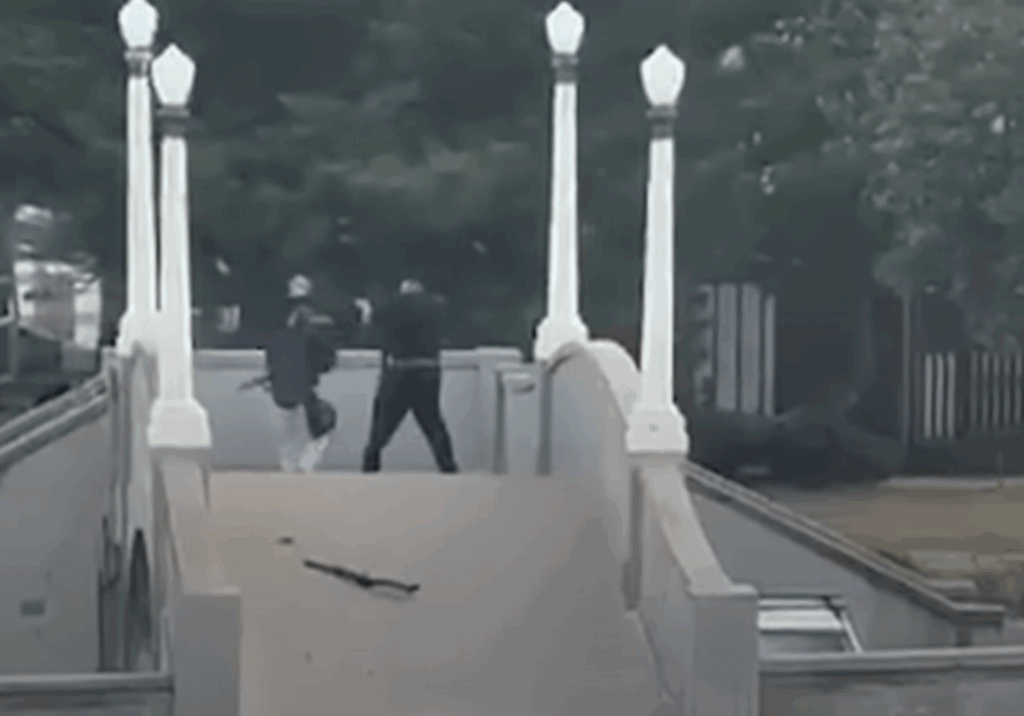Australia/Israel Review
Is Hamas an “idea”?
Dec 21, 2023 | David Hazony

“Hamas is an idea, and you can’t destroy an idea.”
This is one of the most pervasive bromides emerging over recent weeks from both pro-Hamas apologists and a wide range of well-meaning commentators and analysts grappling with the complexities of the war.
Yet it is not only false, but also exceedingly dangerous.
First – Hamas is not really an idea. It’s a terror organisation, with funding, hierarchy, operations, and weapons that include rockets, RPGs, anti-aircraft missiles, and tens of thousands of armed soldiers. Nobody ever called Hamas an idea before October 7. Suddenly, in light of Israel’s decision to end Hamas’ reign in Gaza, it’s fashionable to call it an “idea”. This swift rhetorical redefinition is transparently manipulative – and alone should suffice to make critically-minded people think twice before repeating it.
Second – to the extent that Hamas really is an idea, it’s a pretty horrifying one. The idea, after all, is to kill Jews. More specifically, it is a fantasy of the destruction of Israel and its replacement, not with a prosperous and peaceable independent Palestinian state, but with brutal Islamist rule.
Of course, killing Jews is not a new idea, and the Palestinian cause has been advocating it for almost a century. The PLO, which is the parent organisation of today’s Palestinian Authority, was founded on a similarly destructive eliminationist ideology and can be credited with inventing modern terrorism.
But as Hamas leaders have made clear, even Israel’s destruction would not satisfy the needs of this particular variant. The Islamist idea is not nationalist; it knows no borders and embodies no national aspirations. It is more like the ideology of the Muslim Brotherhood that spawned it, or like the Iranian regime ideology of a grand global battle.
Like that of ISIS, Hamas’ idea is a genocidal, imperialist one, which must be eviscerated if we are to live in peace.
Third – and perhaps this is most important – you actually can destroy an idea, or at least sufficiently disempower and disincentivise it so that it becomes harmless. Our entire enlightened world is built on the destruction of bad ideas, from the geocentric view of the universe to the abolition of racial discrimination through the Civil Rights Act. The Nazi idea was sufficiently “destroyed” to allow peoples to live without Nazi rule. So was Soviet Communism.
The implication of the phrase – if you can’t destroy an idea, after all, one shouldn’t bother trying – is tantamount to abandoning the world to the worst ideas of its worst actors.
What does it take to destroy an idea?
First, you take away its guns. Ideas with power are far more dangerous than those without, as we saw on October 7. And to the extent that ideas have the appearance of real-world power, they grow stronger in people’s minds. Ideas are like sports teams: Losers are less attractive than winners.
This is what the US did to ISIS, and what Israel is doing in Gaza.
Second, you take away funding, legal status, and social licence from organs that propagate the idea. Destroying Hamas as an organisation is merely a first step in what should be a prolonged campaign to defund, ban, and shame bodies and individuals that support its aims – whether in universities, international NGOs, or publications.
But the most important thing you can do is to provide better ideas. To develop them, hone them, empower them, fund them, repeat them, teach them in schools. To show, over and over, why those ideas are better than the barbarism of Hamas and Iran and their ideological bedfellows in the West.
As we all now see, this battle of ideas is much bigger than Hamas. The assaults of October 7 unleashed an entire world of antisemitic, anti-Western activism that rides roughshod over truth, morals and decency. In the process, it has laid bare the failure of Western countries to defend their own foundational ideas – especially in academia, which has become the hornets’ nest of anti-Western agitation in media, non-profits and even government.
This must change. Professors and administrators who negate the intellectual foundations of Western democracy should be ostracised and routed from campuses. Funding from foreign sources should be scrutinised, publicised, and highly regulated. Public funding should be removed from any institution that fails to act.
We are in a war for our civilisation’s survival, and we have scarcely begun to fight.
Is this problematic from a free-speech perspective? Of course it is. Just as assaulting a hospital is problematic, if necessary, when it’s being used by terrorists. In the same way that Hamas exploits the vulnerabilities of our humanitarian order in Gaza, so too have enemies of the West exploited our academic freedoms to attack our civilisation. This dates back to the Soviet era and continues today in “anti-colonialist” movements affecting science, law, and especially the humanities.
Today, every prestigious university has become a Gaza hospital. Our top students and scholars have all become human shields. The threat to our future is staring us in the face.
It’s time to wake up. Some ideas are worth destroying, and right now it is imperative to take up the long fight.
Dr. David Hazony is editor of Jewish Priorities: Sixty-Five Proposals for the Future of Our People (Wicked Son, 2023). © Jewish Journal (www.jewishjournal.com), reprinted by permission, all rights reserved.
Tags: Hamas, Islamic Extremism, Palestinians






